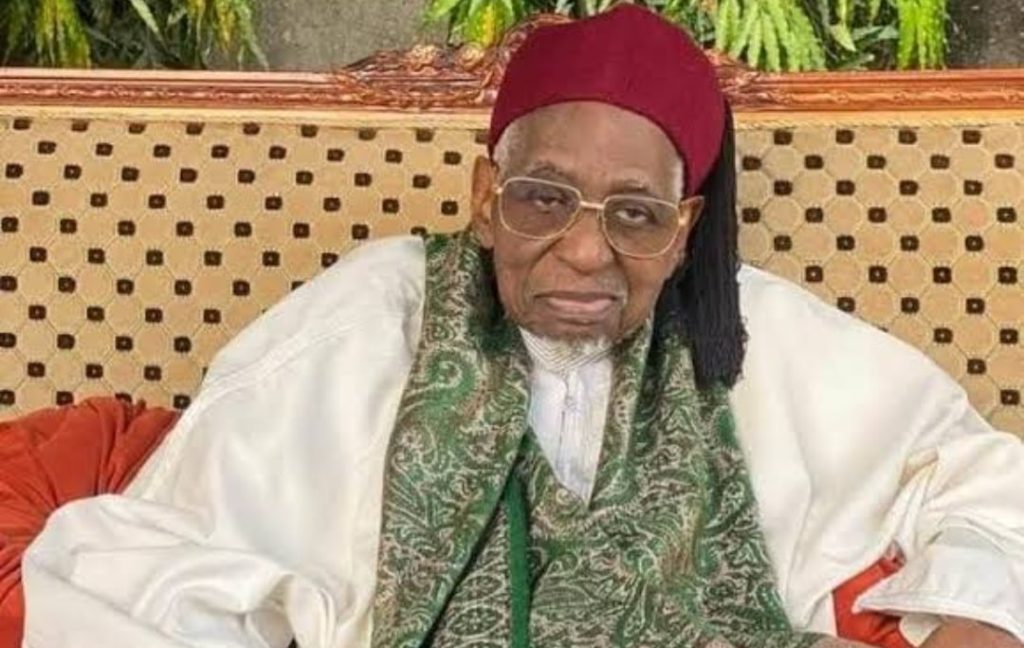On February 3, 2025, the Federal High Court in Lagos, presided over by Justice Alexander Owoeye, granted an interim forfeiture order for digital assets valued at $222,729.86. These assets are allegedly connected to fraudulent activities involving Chinese and Filipino nationals. The Economic and Financial Crimes Commission (EFCC), represented by counsel Zeenat Atiku, filed the ex parte motion under Section 44 (2)(B) of the 1999 Constitution (as amended) and Section 17 of the Advance Fee Fraud and Other Fraud-Related Offences Act No. 14, 2016. The court mandated the EFCC to publish the forfeiture order in a national newspaper, providing a 14-day window for any interested parties to appear and contest the permanent forfeiture of the assets to the Federal Government.
Uncovering the Cybercrime Syndicate
The EFCC’s investigation began after receiving intelligence about a large-scale fraud operation involving foreign nationals in Lagos. A sting operation led to the arrest of 792 suspected cybercriminals and the seizure of approximately 1,000 routers, SIM cards, computers, and mobile phones. Further investigations revealed that the suspects were part of a syndicate engaged in cryptocurrency investment fraud and romance scams. The syndicate allegedly funneled illicit proceeds through Genting International Co. Limited (GICL), a Nigerian-registered company. Between April and December 2024, GICL’s Union Bank account reportedly received over N2.26 billion. Bank statements indicated that primary inflows into the account came from cryptocurrency vendors Chukwuemeka Okeke and Alhassan Aminu Garba, who admitted under caution to receiving a total of $2.39 million in USDT from the syndicate through peer-to-peer trading. Blockchain analysis traced these funds to wallet addresses linked to fraudulent schemes, including Conti.vip.
Arraignment of Foreign Nationals
Following the investigation, the EFCC charged 57 foreign nationals, including Chinese and Filipino citizens, before the Federal High Court in Lagos on charges of fraud, cybercrime, and attempts to destabilize Nigeria’s constitutional structure. The defendants were separately arraigned before Justices Ayokunle Faji, Chukwujekwu Aneke, Denide Dipeolu, and Alexander Owoeye. Among the defendants were individuals such as Cherry De Leon (alias Yesh De Leon), Khurram Shanzad, Fernad Fu Fang (alias Kim), and others. The defendants were arrested on December 10, 2024, during an EFCC-led operation codenamed “Eagle Flush Operation” at No. 7 Oyin Jolayemi Street, Victoria Island, Lagos. The EFCC alleged that the syndicate engaged in cyberterrorism, cryptocurrency fraud, identity theft, and romance scams, employing Nigerian youths for fraudulent activities. Following their arraignment, all defendants pleaded not guilty. Consequently, the court ordered their remand in correctional centers. Female defendants were sent to Kirikiri Correctional Centre, while male defendants were remanded at Ikoyi Correctional Centre.
Details of the “Eagle Flush Operation”
The “Eagle Flush Operation” conducted by the EFCC on December 10, 2024, targeted a seven-story building at No. 7 Oyin Jolayemi Street, Victoria Island, Lagos. This building, known as the Big Leaf Building, housed a call center where the syndicate allegedly orchestrated their fraudulent activities. The operation led to the arrest of 792 individuals, including 148 Chinese and 40 Filipino nationals. The suspects were accused of luring victims, primarily from the Americas and Europe, through social media and messaging platforms, including WhatsApp and Instagram. They seduced victims online or offered them apparently lucrative investment opportunities, pressuring them to transfer money for fake cryptocurrency schemes and other non-existent projects. Nigerian accomplices were recruited by the foreign kingpins to prospect for victims online through phishing, targeting mostly Americans, Canadians, Mexicans, and several others from European countries. Once the Nigerians were able to win the confidence of would-be victims … .
Legal Proceedings and Charges
The defendants were arraigned on separate charges bordering on alleged cybercrimes, cyber-terrorism, impersonation, possession of documents containing false pretense, and identity theft, among others. One of the counts reads: “That you, Zhang Hua Zhai and Genting International Co. Limited, on or about the 18th of December 2024 in Lagos, within the jurisdiction of this Honourable Court, willfully caused to be accessed, computer systems organized to seriously destabilize the constitutional structure of Nigeria (which prohibits and prevents cyber and related crimes) when you procured/employed Nigerian youths for identity theft and to hold themselves out as persons of foreign nationality, with the intent to gain financial advantage for yourselves and you thereby committed an offense contrary to and punishable under Section 18 and 27 of the Cybercrimes (Prohibition, Prevention, Etc) Act, 2015 (As Amended, 2024).” Another count reads: “That you, Viera Dela Cruz (A.K.A Nina Viera Gonzal) & Genting International Co. Ltd., sometime in December 2024, in Lagos, within the jurisdiction of this Honourable Court, willfully caused to be accessed, computer systems organized to seriously destabilize the constitutional structure of Nigeria (which prohibits and prevents cyber-related crimes) when you procured/employed Nigerian youths for identity theft and to hold themselves out as persons of foreign nationality, with the intent to gain financial advantage for yourselves and you thereby committed an offense contrary to and punishable under Section 18 of the Cybercrimes (Prohibition, Prevention, Etc) Act, 2015 (As amended 2024).”
Implications and Next Steps
The interim forfeiture order and the arraignment of the foreign nationals underscore Nigeria’s commitment to combating cybercrime and protecting its economic and constitutional structures.













